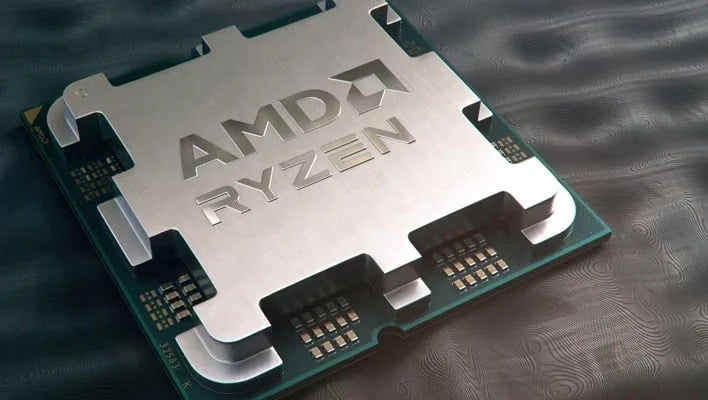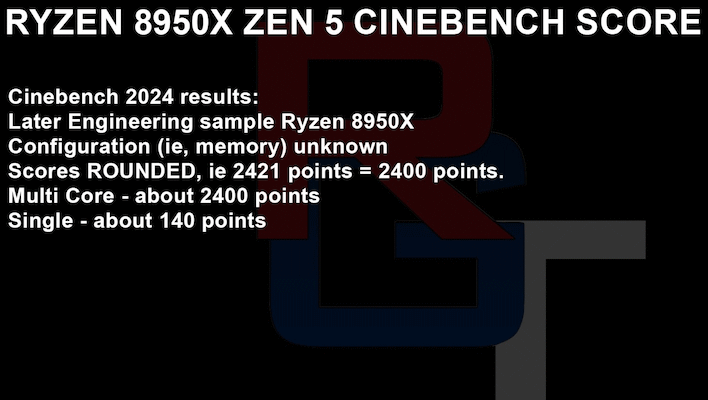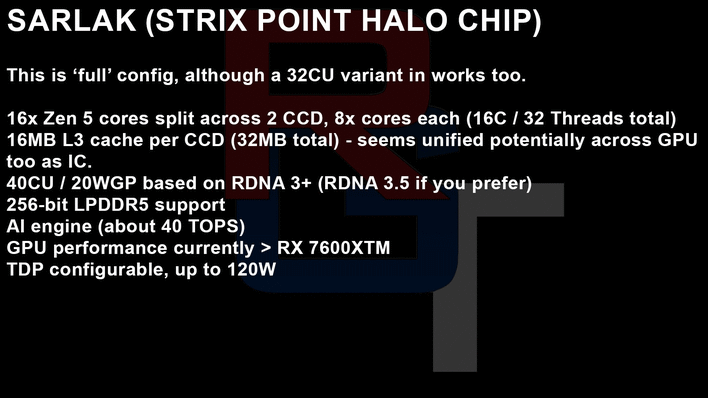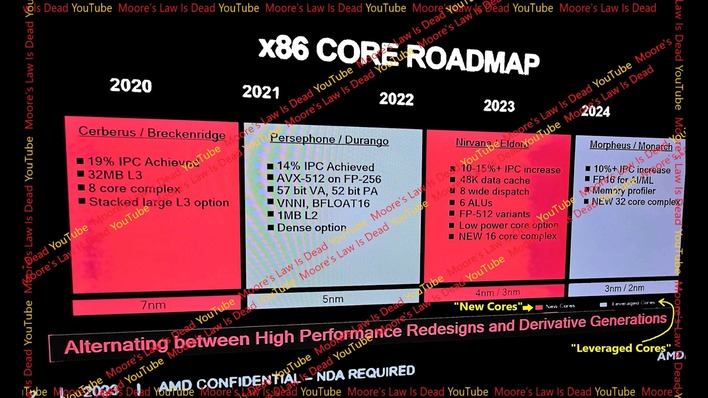Ryzen 8950X Zen 5 CPU Benchmark Scores Allegedly Break Cover And They're Really Good

Most of AMD's upcoming Ryzen 8000 series processors will be based on the company's next-generation Zen 5 processor architecture, and that's a big deal because by all accounts, Zen 5 is going to be a major redesign of the Zen CPU core. Earlier leaks have put Zen 5 down for a 10-15% IPC increase, but the most recent leaks seem to indicate a much greater performance increase.
These leaks originate from an unknown source as they usually do, but they come to us by way of tech YouTuber RedGamingTech who is famous (or perhaps infamous) for posting hardware leaks, especially about upcoming AMD parts. In his most recent video, RedGamingTech pretty much cuts straight to the point and presents what he proposes to be leaked Geekbench and Cinebench numbers from "late ES" Zen 5 processors. ES in this case refers of course to "Engineering Sample", pre-release processors that are used for testing and verification.

Comparing the numbers that RedGamingTech (RGT) gives for the Ryzen 9 8950X, we see between a 12% and 21% increase in single-threaded Geekbench 6, while the multi-threaded benchmark gain is larger, between 18% and 40%. The variance here comes down to the range of available benchmark results in the Geekbench database; if we use the numbers on the official Geekbench CPU charts, it's 16% single-thread and 25% multi-thread.

Meanwhile, in Cinebench 2024, the Ryzen 9 8950X apparently scores "about 2400 points" in the multi-core metric, while its single-core score is "about 140 points." Those numbers might not sound high if you're familiar with older Cinebench versions, but keep in mind that 2024 completely revised the scale. In fact, 140 points on the single-threaded score is around a 12% gain over the Ryzen 9 7950X, while the multi-core score is right about 10% faster.
Either way, these gains aren't bad gen-on-gen, especially considering that RGT remarks that this CPU continues with 16 cores on the top-end SKU for Socket AM5. He notes that the cIOD, the I/O chiplet for Ryzen processors that holds the memory controller among other components, is expected to be basically unchanged from Zen 4. That means that memory performance will probably be rather similar, and so 16-core Zen 5 processors could start to run into bandwidth limitations.

RedGamingTech also gave some numbers for Geekbench and Cinebench 2024 on a Ryzen 9 8950HS engineering sample. This is purportedly a 35-watt Zen 5 mobile processor from the Strix Point family. The benchmark values that he offers up are extremely impressive; in comparison to the Ryzen 9 7940HS, we're looking at Geekbench score jumps of 37% on a single thread and a whopping 77% across multiple threads. The Cinebench single-thread number is slightly worse at around 24%, but the multi-threaded score is more than double what a 7940HS can do.
Some of the multi-core gain can probably be explained through Strix Point supposedly sporting twelve cores in a hybrid Zen-4-plus-Zen-4c configuration. Even still, that's a massive jump in single-threaded performance as well, especially considering that 35W TDP rating for the leaked data. That could point to drastically-improved power efficiency for Zen 5. Some improvement is expected thanks to the jump to TSMC's N3, but this implies quite a shift.

Finally, he talks a bit about the Ryzen 9 8955HX, which is supposedly going to be based on AMD's "Strix Halo", or as he calls it, "Sarlak". If you haven't read about it before, this CPU is supposedly going to be a chiplet-based processor with up to 16 Zen 5 CPU cores, a massive 40-CU RDNA 3.5 GPU, and a 256-bit memory bus. It won't fit on Socket AM5, but it could make some killer gaming laptops or possibly mini-PCs à la the Mac Mini.

Indeed, Apple seems to be directly in the sights of AMD with this processor, as it's rather comparable to the just-announced M3 Pro—same memory bus width, four more CPU cores, and two more GPU "cores" if we count by RDNA WGPs instead of the older Compute Unit metric. RGT claims that the Ryzen 9 8955HX performs similarly to the Ryzen 9 8950X in Geekbench and Cinebench, although we'd actually expect higher performance due to the wider memory bus. He also says that gaming performance is similar to a Radeon RX 6750 XT despite the chip's 125W TDP.

After delivering the benchmarks, RGT talked a bit about what he's heard concerning the Ryzen 8000 series CPUs as well as the Zen 5 processor cores. The previous 10-15% IPC expectation came from a CPU core design internal roadmap leaked by fellow YouTuber Moore's Law is Dead. Those numbers, according to RGT, were based on SPECint benchmarks, specifically, and Zen 5 is actually considerably faster in workloads that mix integer and floating-point math. That could be due to the increased dispatch width (from 6 to 8 instructions) on Zen 5.
Additionally, he says that the processor design philosophy at AMD has shifted significantly toward its high-margin EPYC CPU business. As a result, the processors are being designed with a lesser emphasis on single-threaded CPU clock and a greater emphasis on multi-threaded clocks, meaning that the gap between the two has shrunk. Good for creators and scientists; not great for gamers, although hardcore PC gamers should probably be considering an X3D processor anyway, and those already run lower clocks.

